PESP II, AEO Training Pilot Project
PUNJAB EDUCATION SECTOR PROGRAMME (PESP) II, ASSISTANT EDUCATION OFFICERS (AEOS) TRAINING PILOT PROJECT
Introduction
In collaboration with the Quaid-e-Azam Academy for Educational Development (QAED), the LUMS Syed Ahsan Ali and Syed Maratib Ali School of Education (SOE) is piloting the Punjab Education Sector Programme (PESP) II Assistant Education Officers (AEOs) Training Project, across 4 districts of Punjab, involving 300 Assistant Education Officers and other QAED members such as Education Officers (EOs) and District Subject Experts (DSEs). The pilot project seeks to nudge the role of AEOs from a largely administrative and monitoring one towards a majority school mentorship and support role by redesigning processes that engage them in the delivery of mentorship/support from the earliest stages of their induction.
To that end, SOE has designed a training programme, grounded in best principles and practices of Education Leadership and Management. This document provides details of the modules that comprise the curriculum.
Curriculum Overview
The curriculum for this training project benefits from a compression and relative simplification of SOE’s existing MPhil Education Leadership and Management (ELM) framework, combining it with additional context-specific training requirements, to deliver a learning model that emphasises the following cross-cutting themes and practices:
Education
- Imagining and identifying traits of learning communities, and how they operate optimally in cases established so far.
- Exploring challenges to different parts of an education ecosystem, and how they can leverage their positions and use data analysis to help resolve problems creatively.
- Becoming reflective administrators and experiential coaches to others (teachers) and assume a stronger mentoring role.
- Engaging in effective practices of providing feedback.
Leadership
- Exploring challenges to different parts of an education ecosystem, and how they can leverage their positions and use data analysis to help resolve problems creatively.
- Developing a sense of responsibility for good teacher performance (identifying non-financial incentives; exploring effective education leadership as a public service that operates as a public good with the ability to generate positive externalities in the medium to long run.
- Curating a role as principal agents of change who draw on a collaborative EI (Emotional Intelligence) toolkit (empathy; lead-by-example; nudge; converse, not confront).
Management
- Understanding school administrative components themselves eg NSB; head/teacher observations; SC roles and gaps; classroom/child management.
- Providing strategic financial training to improve clarity on processes, terms and rules (accounting, taxation and procurement) that make NSB utilization effective.
- Exploring role, structure, strengths, and missing links of district (or other local government) delivery chains.
Curricular Modules
Knowledge transfer of the cross-cutting themes and best practices will be achieved through the following modules.
- Communities of Practice: Enable AEOs to understand the foundational significance of building Communities of Practice (CoPs), within and across their clusters, to promote an environment of empathetic listening, conflict management, critical self-reflection and self-awareness.
- Leadership: Provide a diagnostic and strategic foundation to AEOs for leadership practice and enhance their capacity to lead with/without authority across boundaries, and break apart the complexity of adaptive challenges in their localized environment.
- Management
- Financial Management: Equip AEOs to support the School Councils to optimally utilize Non-Salary Budget (NSB) funds, its processes and rules, as part of effective school improvement planning.
- School Improvement Planning: Prepare the AEOs to develop School Improvement Plans (SIPs), in collaboration with Head Teachers, as reflective tools with elements of continuous monitoring and reflection, and anchor these in the local environment of target schools.
- Observation and Feedback: Build on existing practices of classroom observations in the current system and enhance their impact by equipping AEOs with skills required for providing effective feedback to teachers, as part of their role as academic leaders.
Data Information: Engage AEOs in data driven decision-making using the newly developed classroom observation tool (CoT) and enable them to develop a framework to document data, align it with education indicators, and use it to make adjustments in the results chain (inputs, processes, outputs and outcomes).

